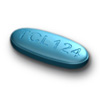Diphenhydramine / Phenylephrine Dosage
Medically reviewed by Drugs.com. Last updated on Jul 22, 2025.
Applies to the following strengths: 6.25 mg-2.5 mg/5 mL; 6.25 mg-6.25 mg/5 mL; 12.5 mg-5 mg; 25 mg-7.5 mg/5 mL; 25 mg-10 mg; 12.5 mg-5 mg/15 mL; 12.5 mg-5 mg/5 mL
Usual Adult Dose for:
Usual Pediatric Dose for:
Additional dosage information:
Usual Adult Dose for Allergic Rhinitis
Diphenhydramine 12.5 mg / phenylephrine 5 mg per 10 mL liquid: 20 mL every 4 hours
Maximum dose: 6 doses per 24 hours
Diphenhydramine 25 mg / phenylephrine 10 mg per tablet: 1 tablet every 4 hours
Maximum dose: 6 doses per 24 hours
Usual Adult Dose for Cold Symptoms
Diphenhydramine 12.5 mg / phenylephrine 5 mg per 10 mL liquid: 20 mL every 4 hours
Maximum dose: 6 doses per 24 hours
Diphenhydramine 25 mg / phenylephrine 10 mg per tablet: 1 tablet every 4 hours
Maximum dose: 6 doses per 24 hours
Usual Pediatric Dose for Allergic Rhinitis
Diphenhydramine 6.25 mg / phenylephrine 2.5 mg per 5 mL liquid:
6 to under 12 years: 10 mL every 4 hours
Maximum dose: 6 doses per 24 hours
Diphenhydramine 12.5 mg / phenylephrine 5 mg per 10 mL liquid:
12 years and older: 20 mL every 4 hours
6 to under 12 years: 10 mL every 4 hours
Maximum dose: 6 doses per 24 hours
Diphenhydramine 25 mg / phenylephrine 10 mg per tablet:
12 years and older: 1 tablet every 4 hours
Maximum dose: 6 doses per 24 hours
Usual Pediatric Dose for Cold Symptoms
Diphenhydramine 6.25 mg / phenylephrine 2.5 mg per 5 mL liquid:
6 to under 12 years: 10 mL every 4 hours
Maximum dose: 6 doses per 24 hours
Diphenhydramine 12.5 mg / phenylephrine 5 mg per 10 mL liquid:
12 years and older: 20 mL every 4 hours
6 to under 12 years: 10 mL every 4 hours
Maximum dose: 6 doses per 24 hours
Diphenhydramine 25 mg / phenylephrine 10 mg per tablet:
12 years and older: 1 tablet every 4 hours
Maximum dose: 6 doses per 24 hours
Renal Dose Adjustments
Data not available
Liver Dose Adjustments
Data not available
Precautions
CONTRAINDICATIONS:
- Current use of a monoamine oxidase inhibitor (MAOI) or use within 14 days of stopping a MAOI.
- Concomitant use with any other diphenhydramine-containing products, including topical preparations.
Safety and efficacy have not been established in patients younger than 6 years.
Consult WARNINGS section for additional precautions.
Dialysis
Data not available
Other Comments
Administration advice:
- Use provided measuring cups for dosing.
Patient advice:
- Take only as directed.
- Avoid drinking alcohol while on this drug.
- Discontinue for nervousness, dizziness, or sleepiness.
- Use caution if driving a motor vehicle or operating machinery.
- If symptoms last over 7 days or are accompanied by fever, seek medical attention.
- If cough lasts over 7 days or comes back, or is accompanied or followed by fever, headache that lasts, or rash, seek medical care promptly.
More about diphenhydramine / phenylephrine
- Check interactions
- Compare alternatives
- Reviews (1)
- Drug images
- Side effects
- During pregnancy
- Drug class: upper respiratory combinations
Patient resources
Other brands
Benadryl Allergy Plus Congestion, Children's Triacting Night Time, Dytan-D
Professional resources
Other brands
Benadryl Allergy Plus Congestion
Related treatment guides
See also:
Further information
Always consult your healthcare provider to ensure the information displayed on this page applies to your personal circumstances.


